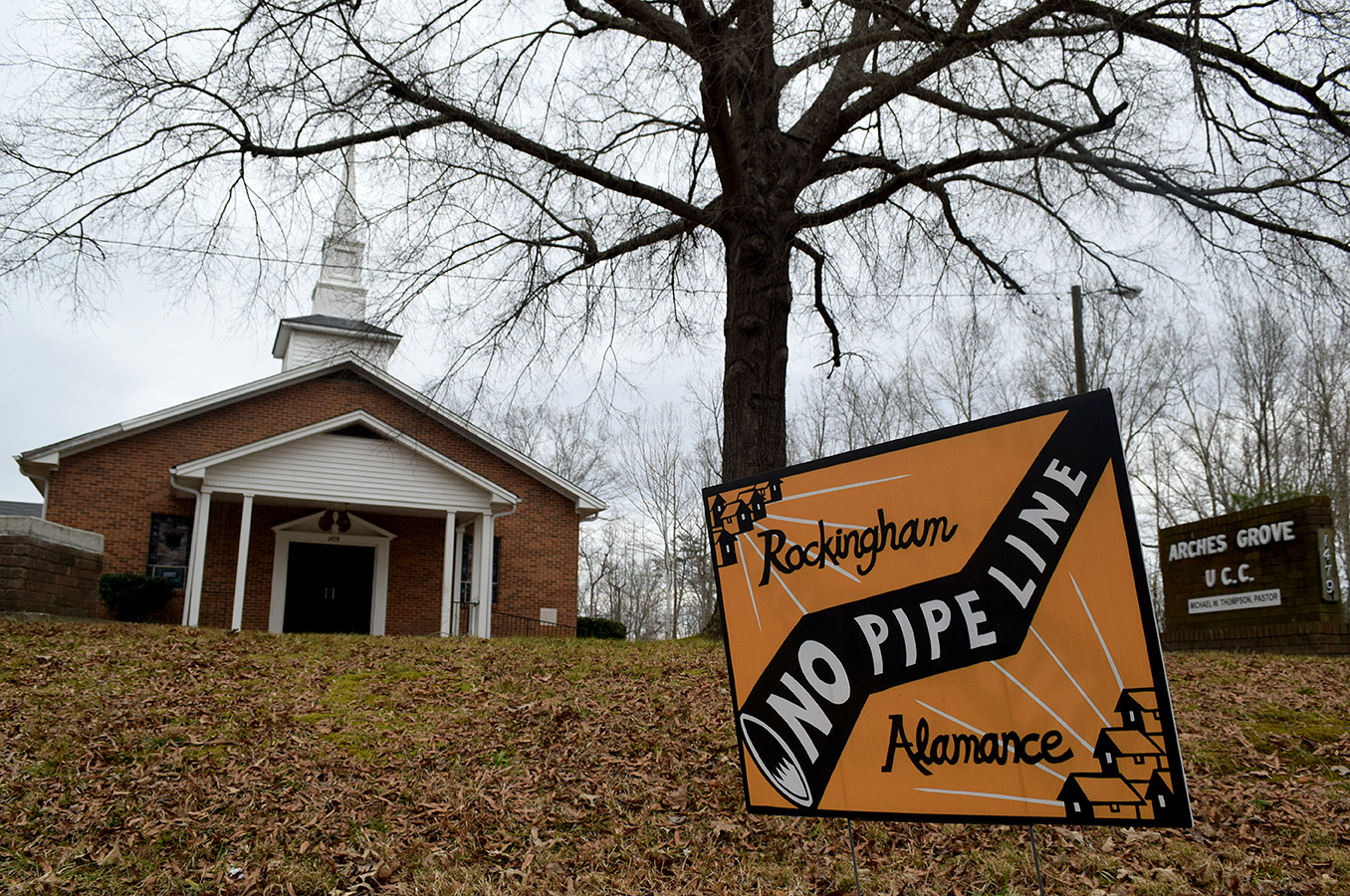MVP Southgate
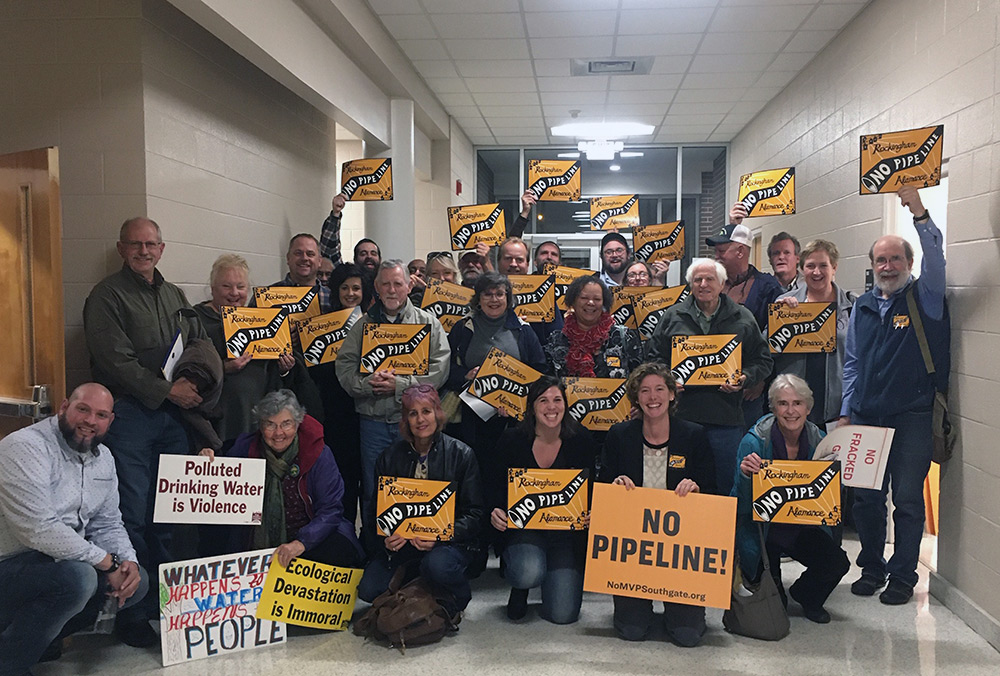
Since Mountain Valley Pipeline was first announced in 2018, residents, churches, Indigenous groups, watershed groups and local governments across three counties in Virginia and North Carolina have fervently pushed back against the fracked-gas MVP Southgate, a proposed extension of the dangerous and harmful Mountain Valley Pipeline.
Construction of the contested 303-mile MVP mainline through West Virginia and Virginia destroyed woodlands, seized private property and violated commonsense water regulations hundreds of times. Despite this horrible track record, the companies building the MVP want to bring their pipeline into North Carolina — but Appalachian Voices is working alongside our partners to make sure that doesn’t happen.
Mountain Valley Pipeline, LLC, spawned the idea of the Southgate extension in April 2018. As originally designed, the project would extend the main pipeline from Pittsylvania County, Virginia into North Carolina’s Rockingham and Alamance counties. The proposal demands a 50-foot permanent easement on landowners’ property with a temporary construction easement of up to 100 feet. The project would have also required a massive, polluting compressor station in a predominantly Black community near Chatham, Va. in its original design.
Although MVP, LLC, originally expected Southgate to be operational by late 2020, the company pushed back its projections to 2026 and asked for its certificate from the Federal Energy Regulatory Commission be extended. Soon after, the company announced a project re-design of the Southgate’s route, diameter and capacity, removing Alamance County, North Carolina from the route.
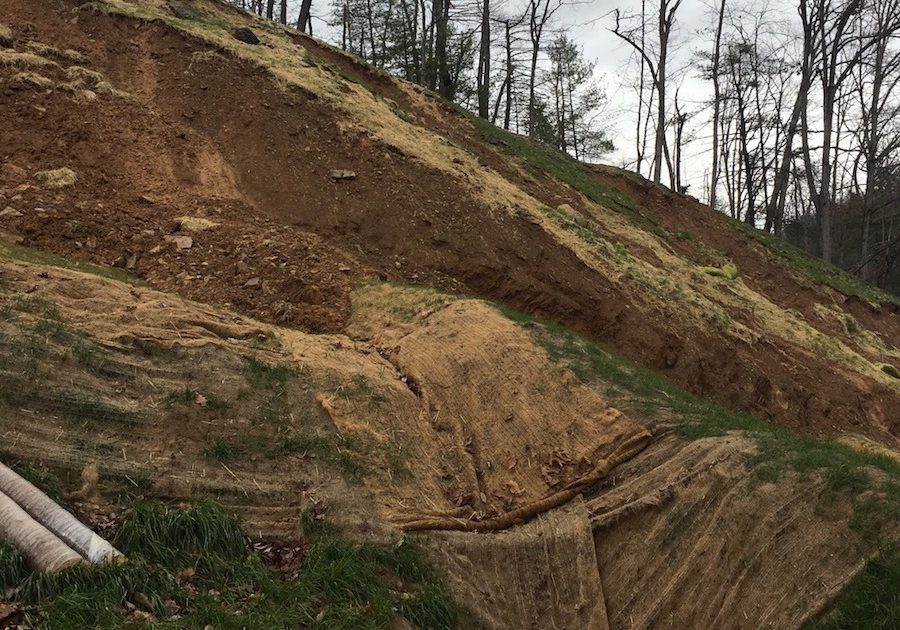
Dangerous and unnecessary
As with other fracked-gas pipelines, Southgate could negatively impact communities, climate and the environment. Clearing the 100-foot easement of vegetation could cause severe erosion problems, a recurring issue for the unfinished MVP mainline.
Muddy erosion from construction could easily deplete or contaminate groundwater supplies in the rural area where many people rely on private wells for their drinking water. Additionally, an explosion could damage any structures within a half-mile. Community members have also expressed concern about losing their land to the private pipeline developers through eminent domain. Building this pipeline also further commits the country to polluting fossil fuels.
Overview
MVP Southgate is a proposed extension of the unfinished 303-mile fracked-gas Mountain Valley Pipeline. As originally proposed:
- Where: Pittsylvania County, Va., into North Carolina’s Rockingham and Alamance counties
- Length: 73 miles
- Width: 24-inch diameter pipe for the first 31 miles, and 16 inches for the remainder
- Original Estimated Completion Date: 2020
- Current Estimated Completion Date: 2026
- Operator:Equitrans Midstream Partners
- Buyer of the Gas: PSNC Energy
- Estimated cost: $468 million
- Estimated cost: Up to $500 million
- Additional Infrastructure: The Lambert compressor station near Chatham, Va.
In December 2023, developers announced a “redesigned” Southgate:
- Where: Pittsylvania County, Va., into Rockingham County, N.C.
- Length: 31 miles
- Width: 30-inch diameter pipe
- Estimated Completion Date: 2028
- Operator: EQM Midstream Partners
- Buyer of the Gas: PSNC Energy (a Dominion Energy subsidiary) and Duke Energy
- Estimated cost: Unknown
- Additional Infrastructure: Would connect to the ‘T15 Lateral Pipeline’ in Eden, N.C.
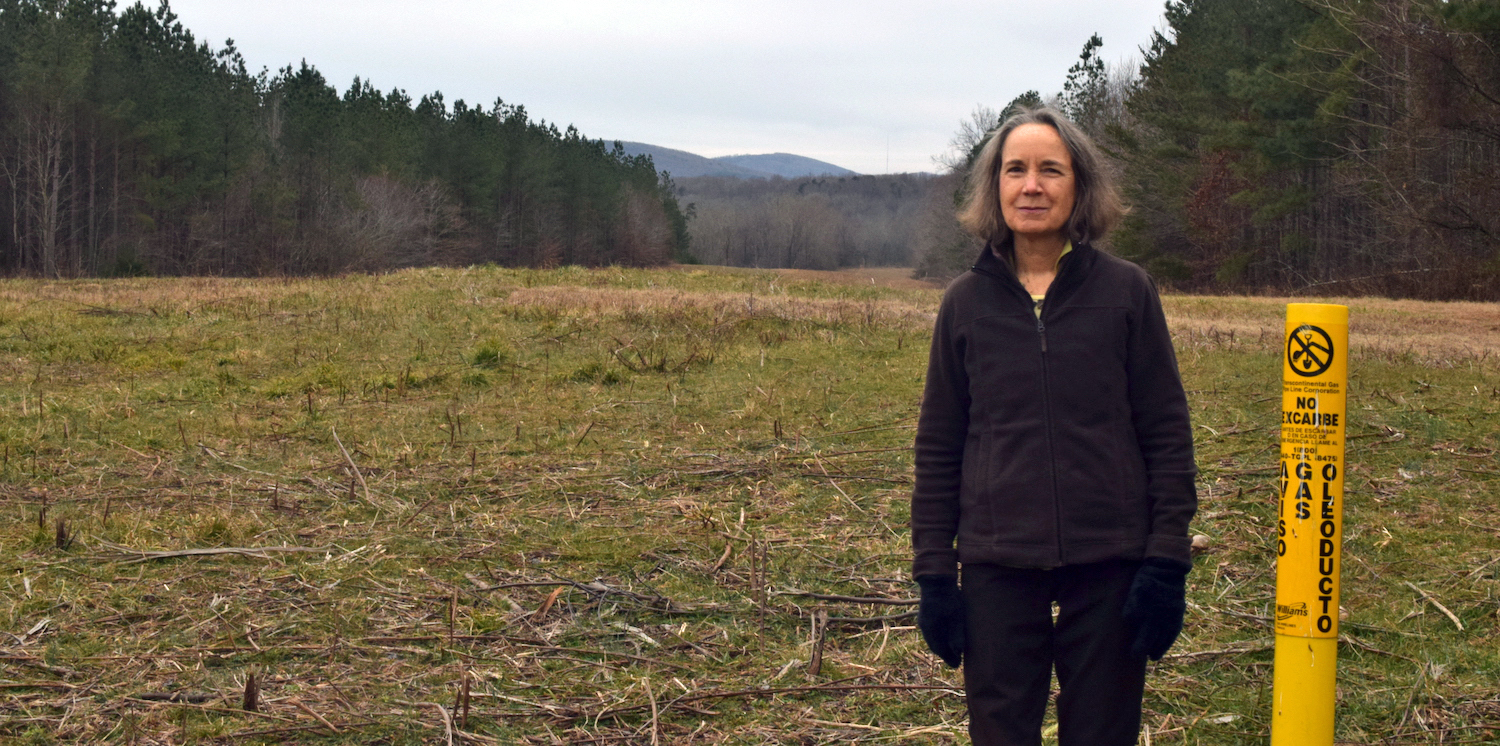
No economic need for Mountain Valley Pipeline’s Southgate
A July 2019 Applied Economics Clinic report found that PSNC Energy, the Dominion Energy subsidiary that contracted to buy gas that would flow through MVP Southgate, overestimated how much gas they will actually need in the future. Alternative projections of growth in gas demand for the region predict 1.2 to 1.6 percent annual growth in the next 5 years, in comparison to PSNC’s projection of 2.2 percent annually.
“Considering the massive disruption to the land, waters and lives of the people living along these interstate pipeline routes, agencies must look at the facts in this report and conclude that not only is another new pipeline not necessary here, it’s also not worth the cost.”
— Appalachian Voices’ North Carolina Program Manager Ridge Graham
Even the North Carolina Department of Environmental Quality agreed that that MVP Southgate was an unneeded risk. In August 2020, the agency denied Southgate’s application for a Clean Water Act permit.
“This has always been an unnecessary project that poses unnecessary risks to our environment and given the uncertain future of the MVP Mainline, North Carolinians should not be exposed to the risk of another incomplete pipeline project,” said then-DEQ Secretary Micheal Regan in an August 2020 statement. “North Carolina’s clean energy future is not dependent on adding more natural gas infrastructure.”
After MVP appealed the decision, the U.S. Fourth Circuit Court of Appeals requested that the DEQ clarify its denial. On April 29, 2021, the agency provided additional reasoning and reaffirmed its denial of the permit.
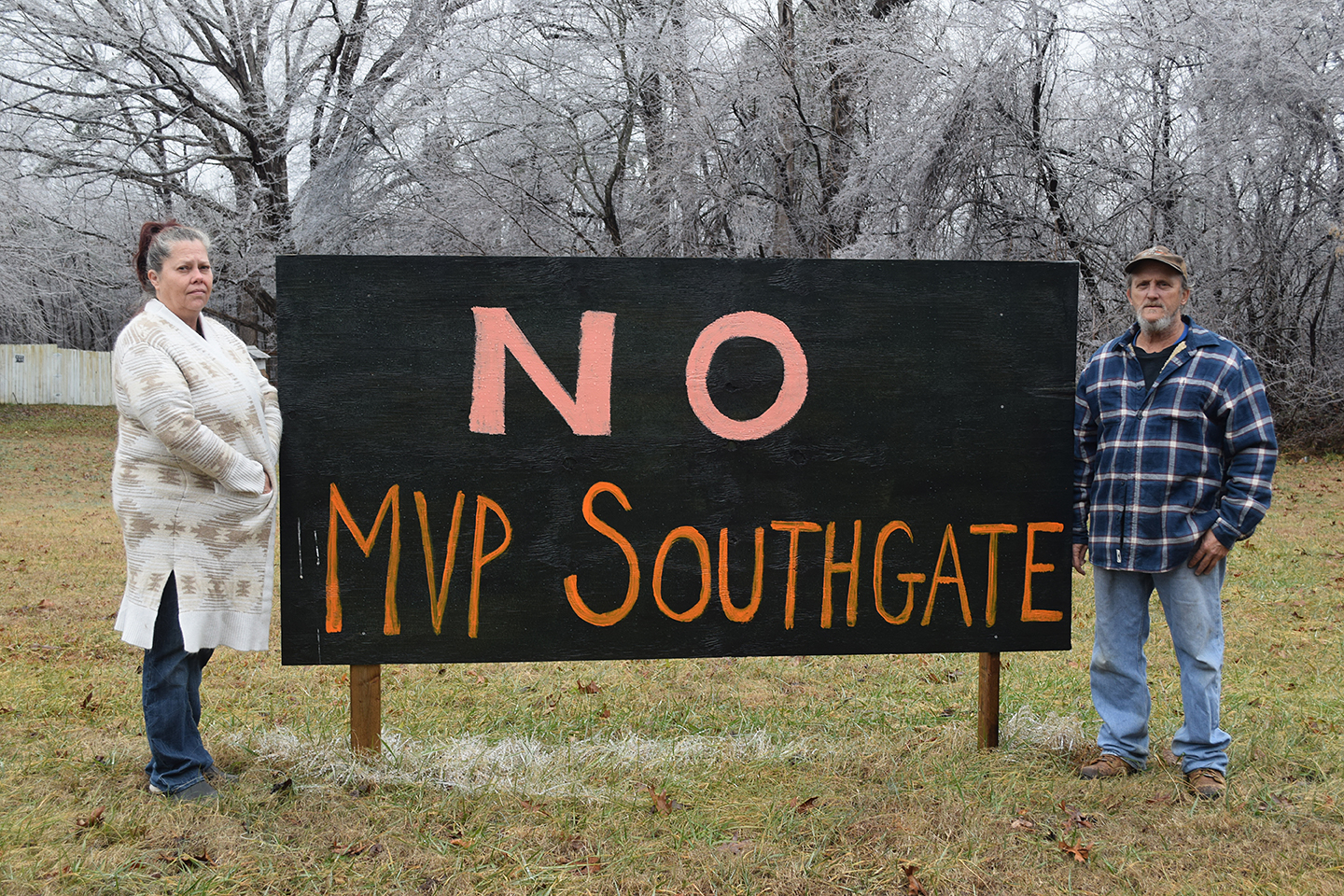
Speaking out against the pipeline
Landowners, environmental groups, local governments and state agencies have spoken out against the project. In September 2018, Alamance County Commissioners passed a resolution opposing Southgate that raised concerns about the pipeline’s impact on the county’s water quality. Officials in Stoneville, N.C., passed a resolution in opposition to the pipeline in October 2018, citing environmental concerns.
In December 2018, Appalachian Voices — alongside our partners Appalachian Mountain Advocates, the Center for Biological Diversity, Chesapeake Climate Action Network, Haw River Assembly and Sierra Club — legally intervened in the Federal Energy Regulatory Commission’s approval process. We argued that the pipeline is not needed, would significantly damage land and water, hurt communities and further commit the nation to climate-altering fossil fuels.
In September 2019, FERC released a heavily flawed Draft Environmental Impact Statement for Southgate that failed to consider the actual need for the pipeline. Thousands of people voiced opposition during the public comment period for the DEIS, as did the NCDEQ.
Stopping the Lambert Compressor Station
With the project’s original design, MVP developers want to build a fracked gas compressor station in Pittsylvania County, Virginia, to connect the Mountain Valley Pipeline to the proposed MVP Southgate extension. The Lambert compressor station would pressurize and pump fracked gas, emitting air pollution in the county’s majority Black Banister District. Local communities and environmental advocates have pushed back against the proposal, which would be the third compressor station on Transco Road in Pittsylvania.
On Dec. 3, 2021, after two days of public, industry and agency comments spread over a two-day long hearing, six of the seven members of the Virginia Air Pollution Control Board voted to deny the air pollution permit for the Lambert Compressor Station. The board focused on environmental justice concerns and the cumulative air quality impacts from the existing compressor stations, including the toxicity of particulate matter that would be emitted from the facility. If the permit had been granted, nearby communities would be subjected to additional air emissions of carbon monoxide, particulate matter 2.5, and formaldehyde — substances known to contribute to respiratory problems, heart disease and cancer.
Despite the overwhelming evidence and opposition against Southgate, in June 2020 the Federal Energy Regulatory Commission granted the project a conditional Certificate of Public Convenience and Necessity. The certificate allows developers to begin condemning private property along the route through eminent domain but will not allow construction to proceed unless the MVP mainline receives all of its permits. In June of 2023, the project’s certificate from the FERC expired. MVP then sought an additional three-year extension to their certificate, which was granted on December 19, 2023.
The December 2023 decision ignored 39,000 members of the public who weighed in during the summer of the same year to oppose the renewal. This opposition came from community leaders, grassroots groups, Virginia NAACP, more than 50 North Carolina legislators and 22 Virginia legislators, as well as North Carolina Gov. Roy Cooper and N.C. Reps. Valerie Foushee, Kathy Manning, and Virginia Reps. Bobby Scott and Jennifer McClellan. Unfortunately, the renewal of the Southgate certificate is consistent with the rubber-stamping by FERC of all fossil fuels projects, regardless of impacts to communities or the climate.
“FERC’s conclusion that approval of MVP Southgate would result in ‘less-than-significant’ adverse environmental impacts flies in the face of the reality of Mountain Valley’s performance to date,” said Katie Whitehead of Pittsylvania County, Va., who lives in the path of Southgate.
In a dramatic turn, just 10 days after receiving a three-year certificate extension, Southgate developers announced a major revamp of the project, revising the route, length and capacity. Simply put, this new project is wholly different from the FERC-approved Southgate.
Since that announcement, federal and state legislators, and environmental advocates have asked FERC to invalidate the original certificate, requesting a formal rehearing of the extension. As ten Virginia legislators stated in a Feb. 16 letter to FERC, the project has “changed in size, capacity and route.” Unfortunately, FERC denied the rehearing request on Feb. 20, 2024. Again, the public’s concerns were brushed aside.
Mountain Valley has said the new design would provide up to 550,000 dekatherms per day of gas capacity. This is a significant increase from the original capacity of 375,000 Dth per day and an increased volume of gas means increased downstream greenhouse gas emissions. Developers also said they needed until 2028 for completion of this project.
2025 updates and public comment periods
In early February 2025, MVP Southgate developers submitted an official request to change the route, diameter and capacity of the pipeline. Thousands of members of the public weighed in, saying the old FERC certificate should not be used for a new design, and asked FERC to place it under review for a new certificate. In May 2025, FERC announced a new public “scoping” comment period open until June 21 to solicit public feedback on the changes. Oral arguments challenging FERC’s decision to extend the certificate deadline were heard in late February 2025, but the U.S. Court of Appeals for the D.C. Circuit has not yet reached a decision.
On April 17, 2025, the Virginia Marine Resources Commission posted Mountain Valley Pipeline, LLC’s Joint Permit Application for its revised Southgate. This set in motion multiple state and federal agencies’ review of the application. The U.S. Army Corps of Engineers is currently accepting public comments until May 30, 2025 for the Section 404 of the Clean Water Act permit that is required for the project.
Section 401 of the Clean Water Act permit review processes will occur later this Summer and Fall in Virginia and North Carolina. The Virginia and North Carolina Departments of Environmental Quality will host public hearings and comment periods.
Continued Opposition
MVP Southgate is a dangerous, unnecessary pipeline that would bring harm to our region — no matter the project’s design. Appalachian Voices and our partners will continue to push back against this fracked-gas behemoth. Some of the organizations include:

